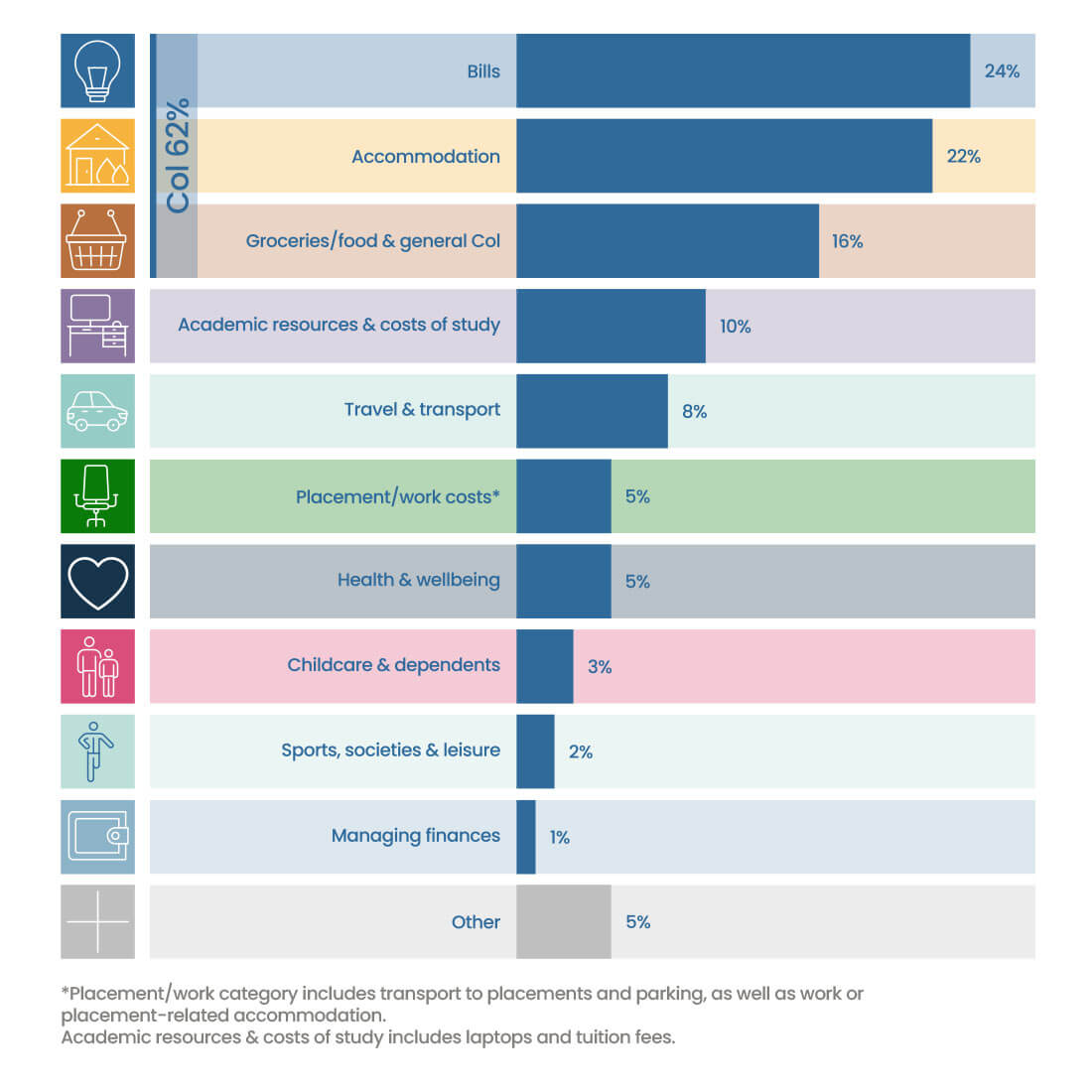Gemma Linsley, Director of Marketing & Communications
JS Group | Transforming the Delivery & Impact of Financial Support
If they’re lucky, that mid-August frenzy when students collect their A‑level results, launches them into one of life’s most exciting, transformational but financially stressful chapters. The life of an undergraduate student. New evidence from HEPI, TechnologyOne, and the Centre for Research in social policy lays bare what many clearly already knew, that the maintenance loan simply doesn’t stretch far enough.
Their latest Minimum Income Standard for Students shows that a first-year student in England living in halls needs around £418 per week, equating to over £20,000 per year just to meet a basic, socially acceptable standard of living. Yet the maximum maintenance loan is nowhere near this level.
Alarmingly, to bridge this gap, even with a full loan, students need to work on average 20 hours per week, severely compromising their ability to engage fully with their studies.
Similarly, the NatWest student living index further highlights the cost of living issues that today’s students are facing. With 31% of students reducing their meals and 25% cutting their heating use, it is clear to see that this is more than a policy oversight, it’s a barrier to fair access, a threat to student wellbeing, and a risk to social mobility. As the Russell Group highlights, without meaningful reform structural inequality and uneven access will persist. Earlier findings from the Save the Student Money Survey also underline this picture, with more than four in five respondents reporting that they worry about making ends meet.
Supporting Students Means Going Beyond Loans
At JS Group, we know that supplemental support is essential to bridge the gap, support that is timely, targeted, and rooted in impact.
That’s why we've partnered with Save the Student to launch the Save the Student Bursary, aimed at helping students facing acute living-cost pressures today. Delivered via our Aspire platform, this bursary ensures that the most financially vulnerable students receive funds quickly and efficiently, giving them the breathing space they need to study, socialise, and belong.
But one bursary isn’t enough. These findings are a call to action for:
- Universities, to scale up targeted bursary schemes and use digital platforms like Aspire to deliver support with precision, agility, and insight.
- Funders and philanthropists, to increase investments in hardship and wellbeing support, particularly for those caught between inadequate loans and mounting living costs.
- Policymakers, to overhaul the student finance system so that maintenance support is aligned not with outdated projections, but with the real, modern cost of being a student.
At this pivotal moment of transition, when futures are set in motion we must not let financial stress hold potential back. The cost of learning isn’t just academic, it’s about belonging, thriving, and succeeding. Students deserve more than loan shortfalls and hallways filled with anxiety. They deserve tailored support, rooted in compassion and powered by efficiency.
With Aspire, we've seen how swift, smart support can make a real difference. Let’s ensure every student can benefit from that difference, not just some.



